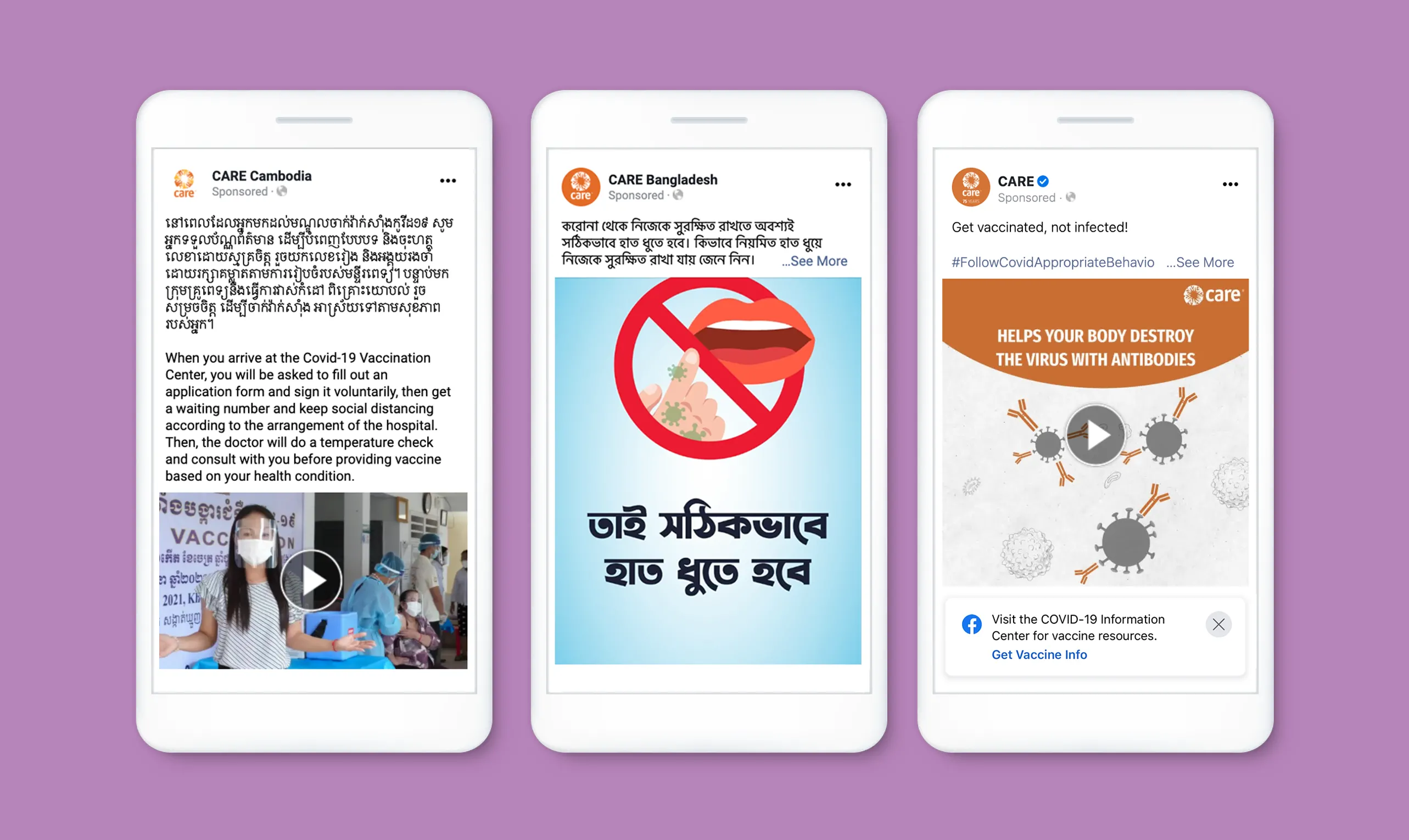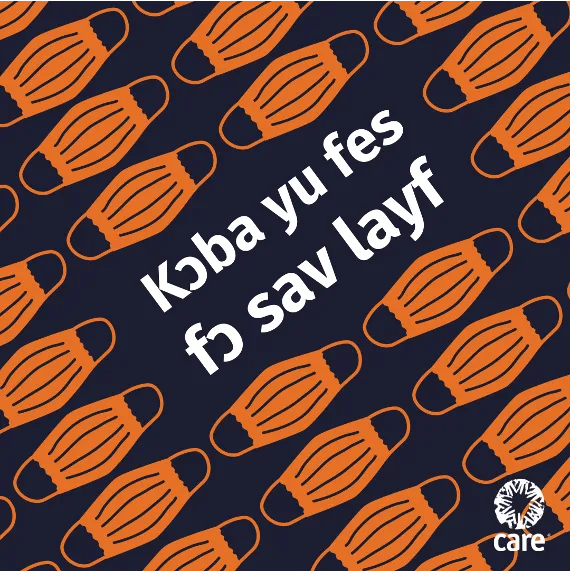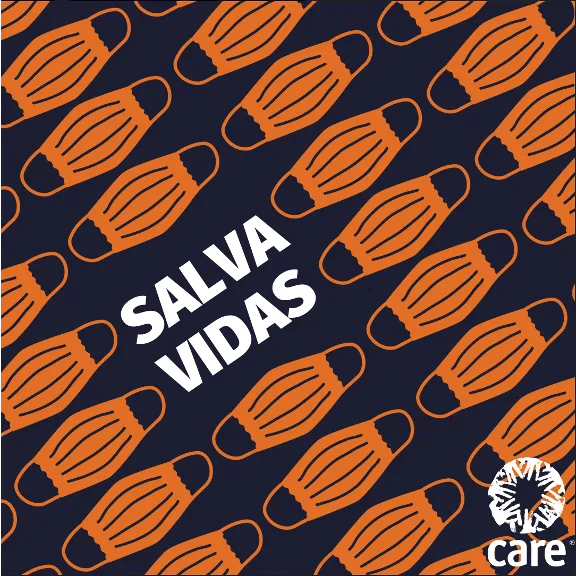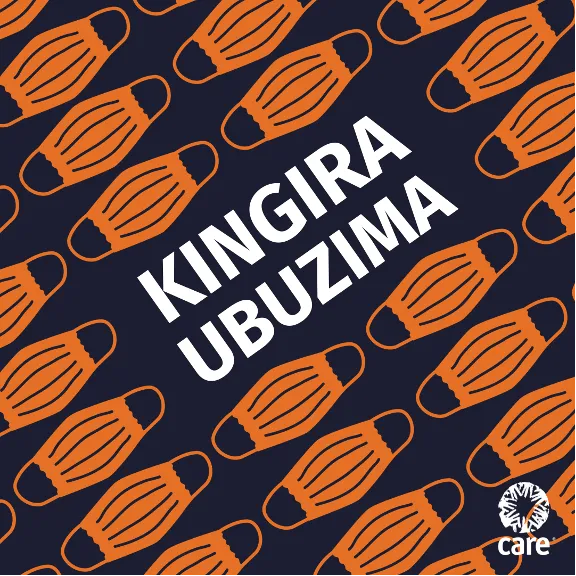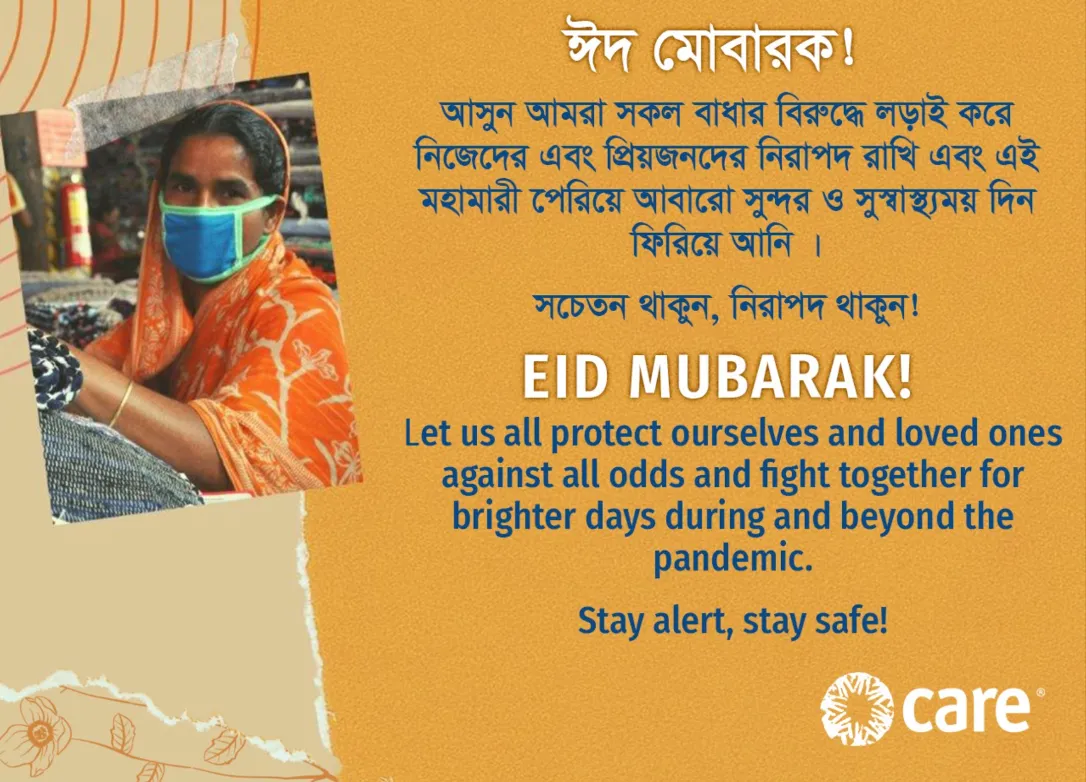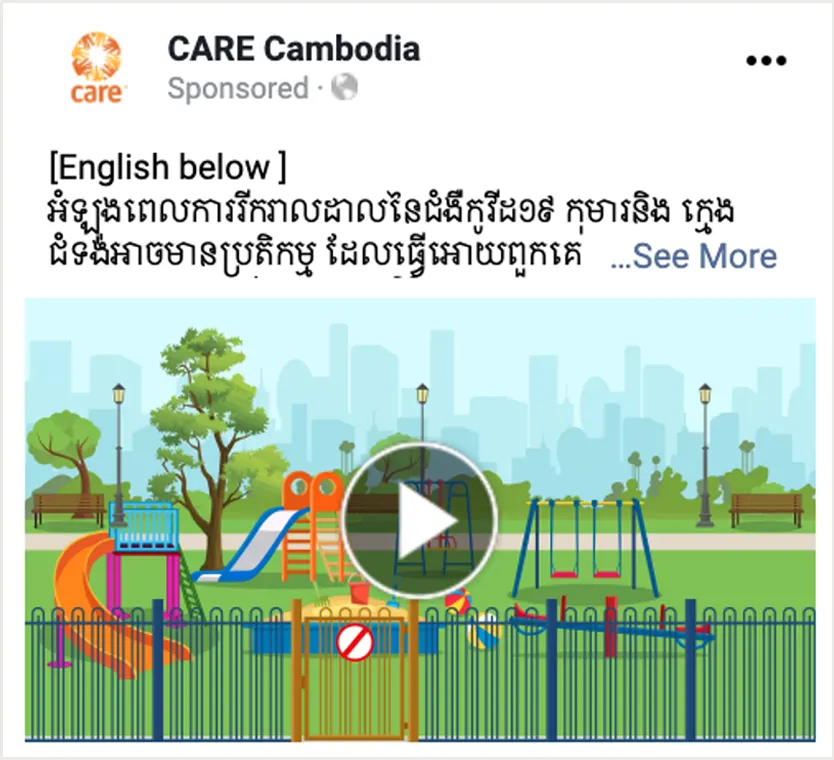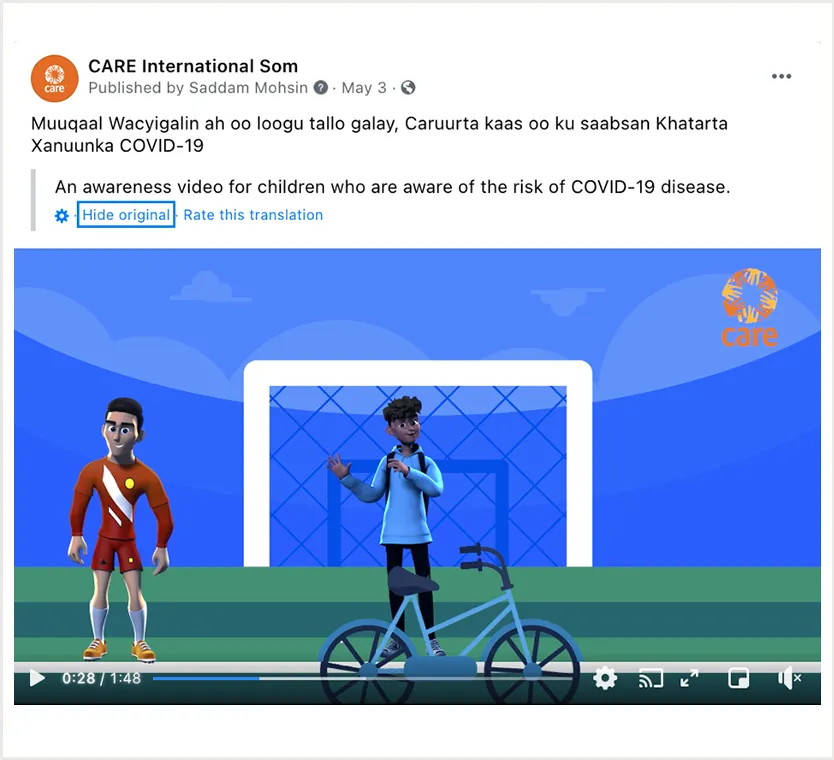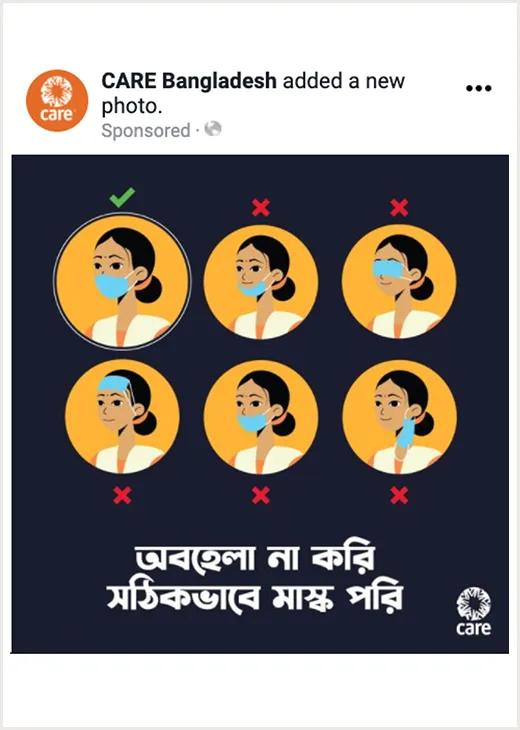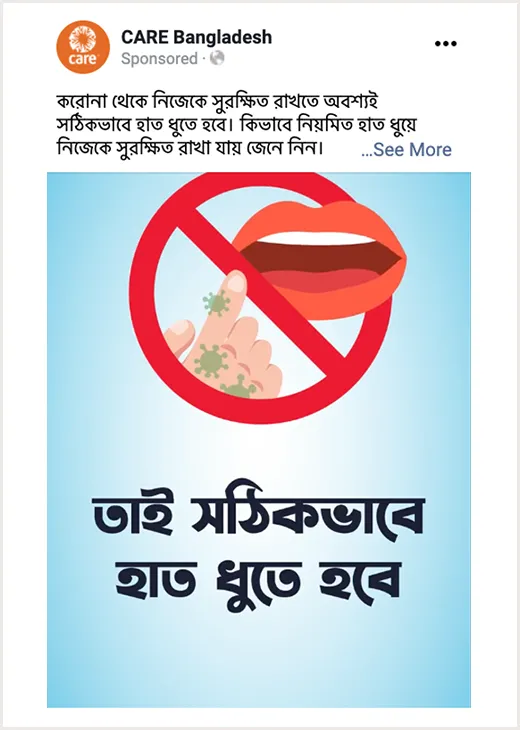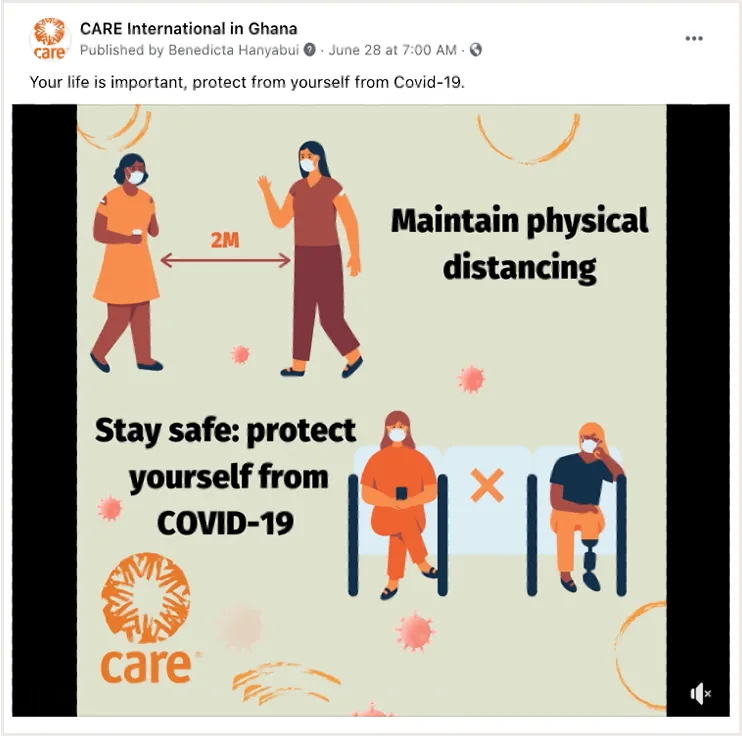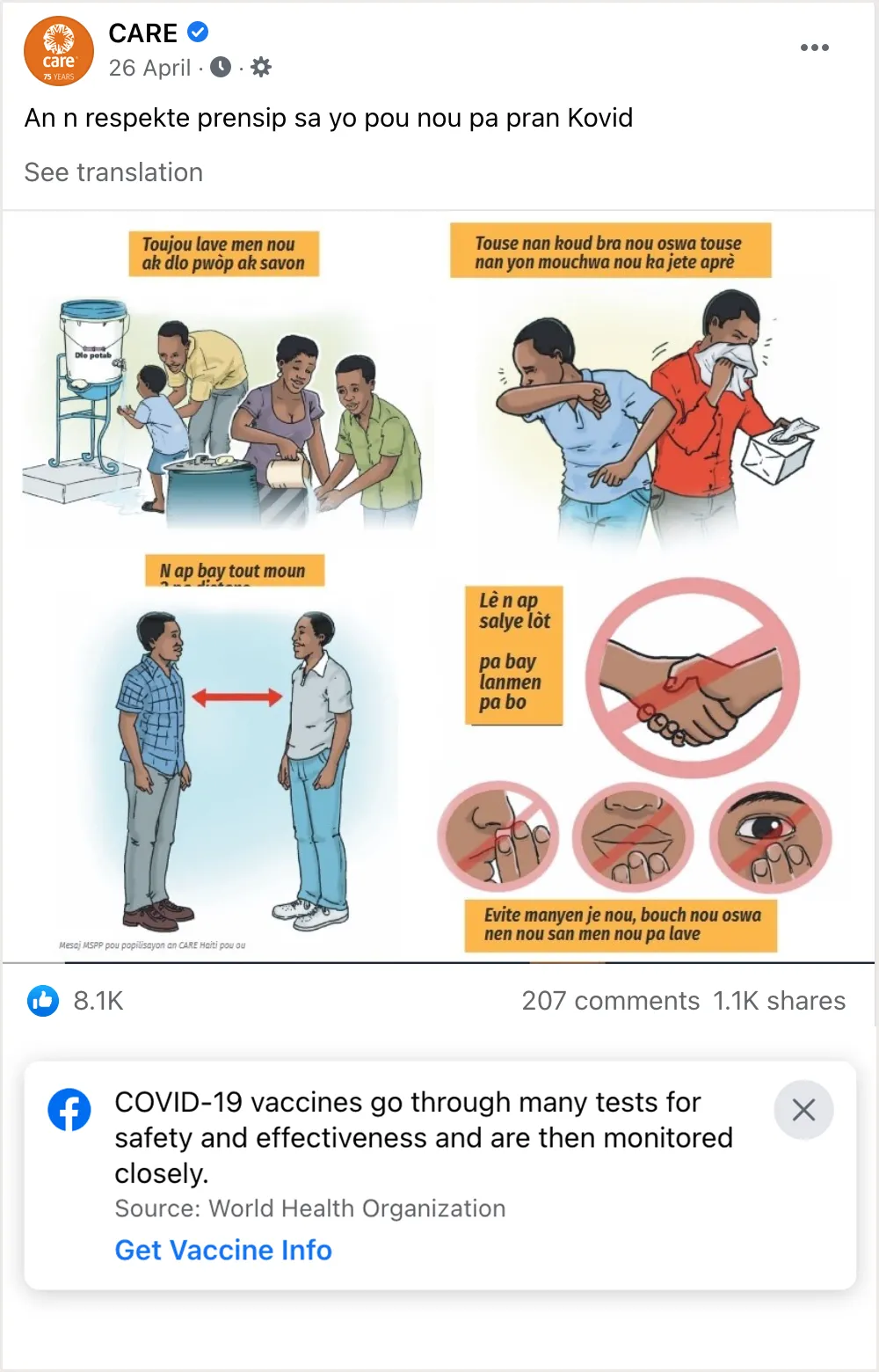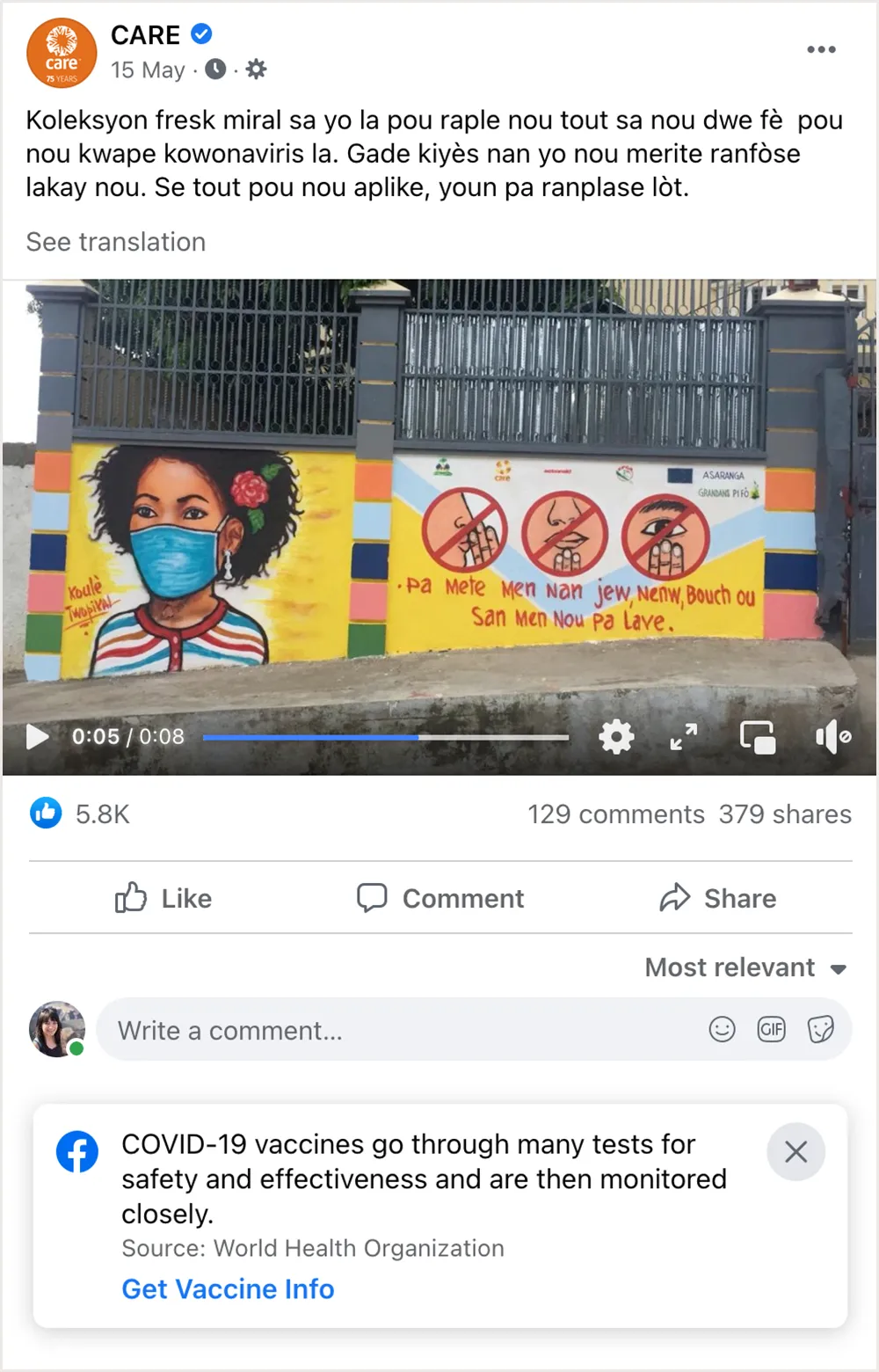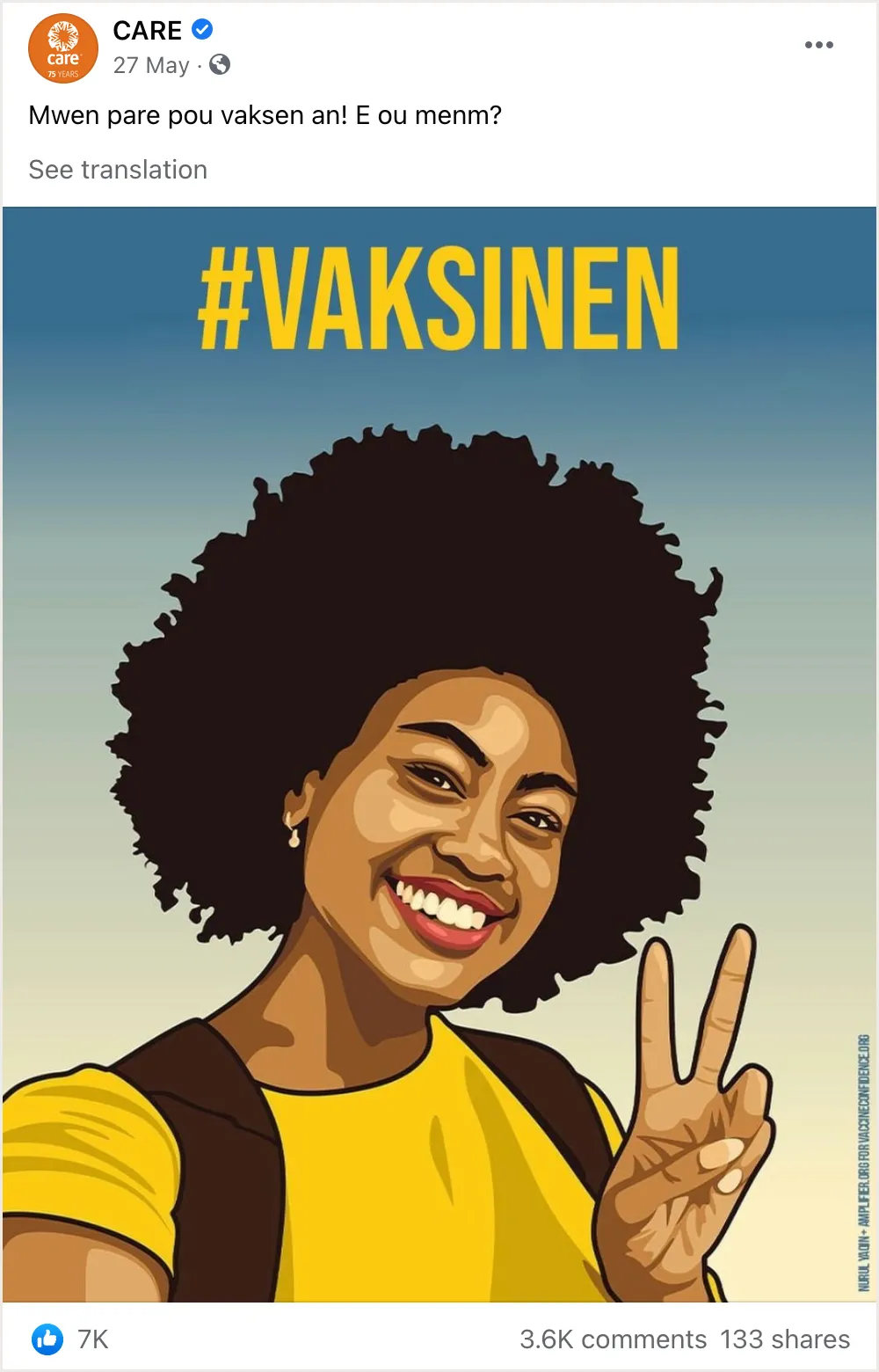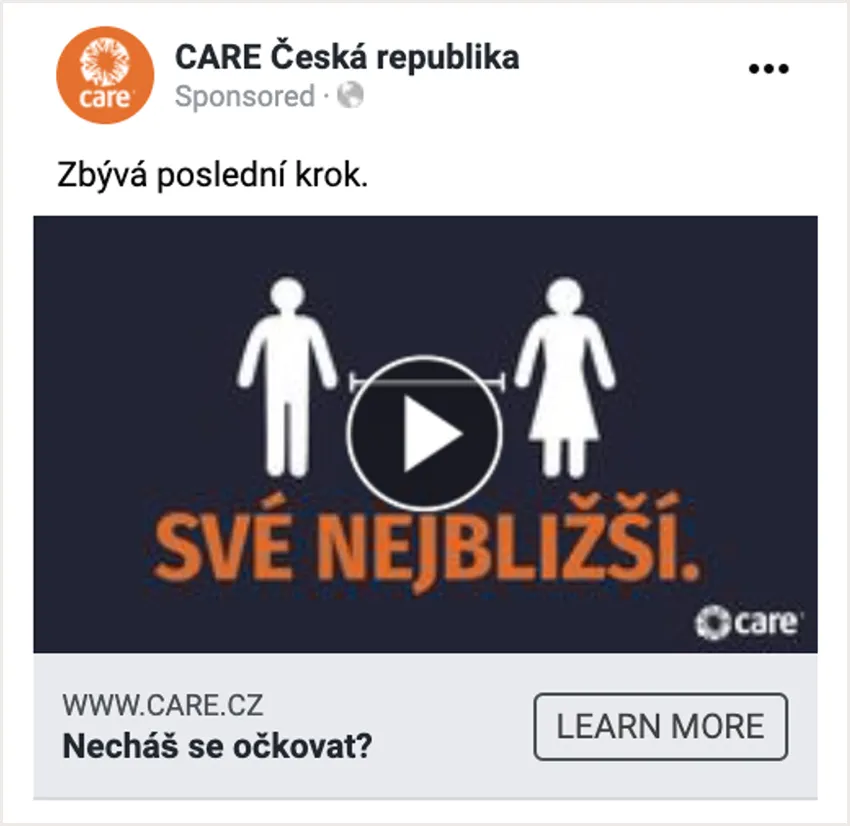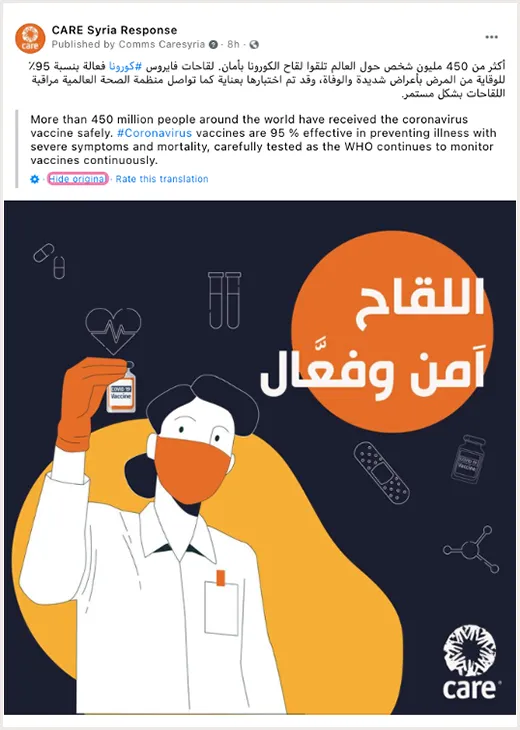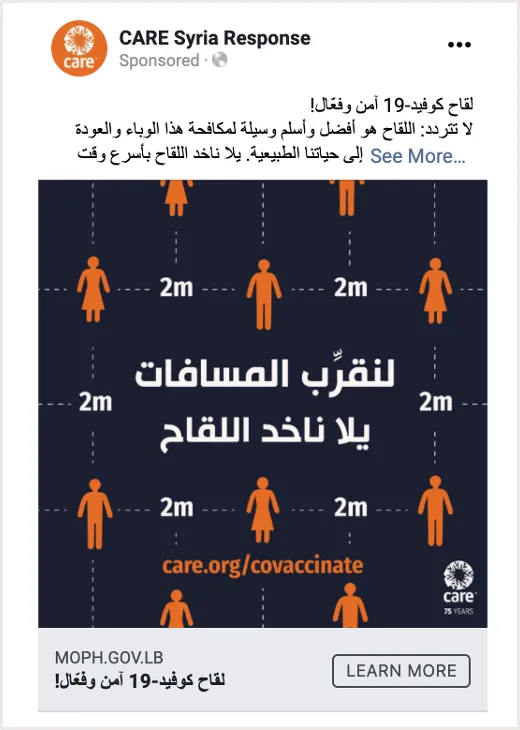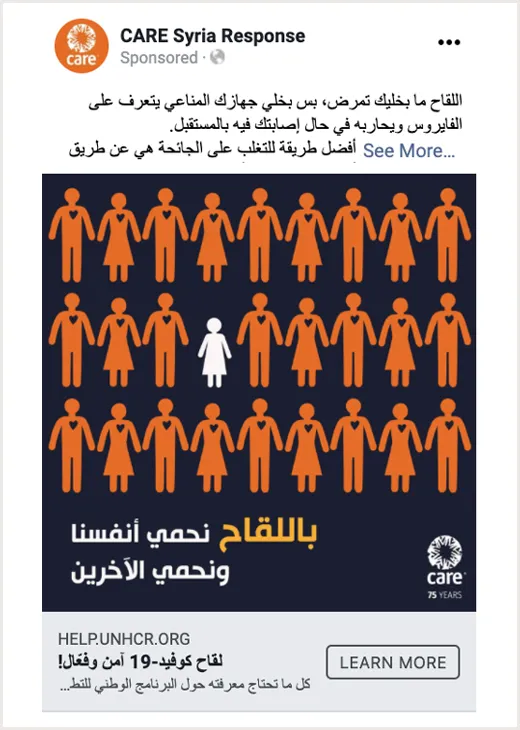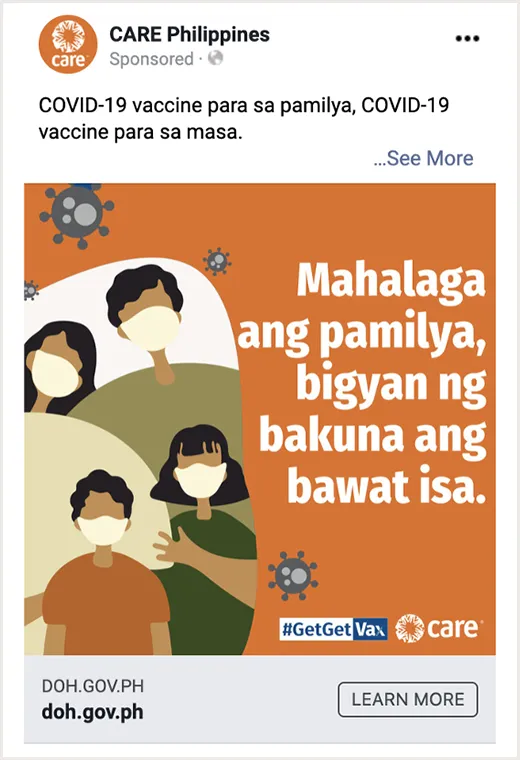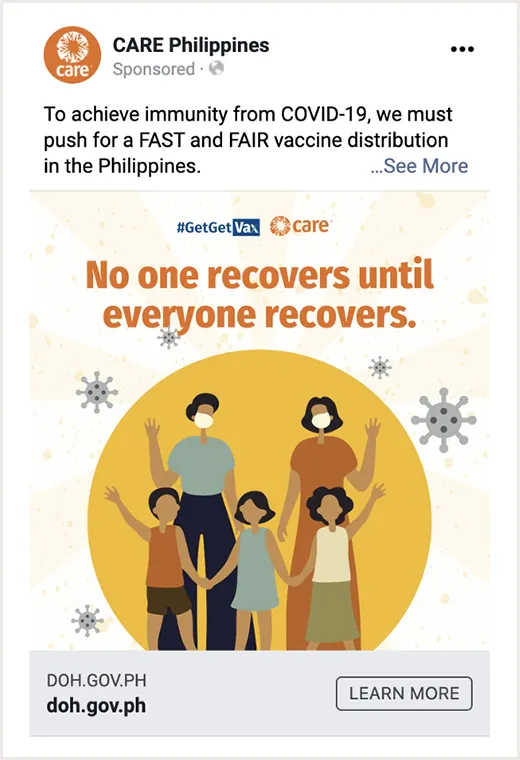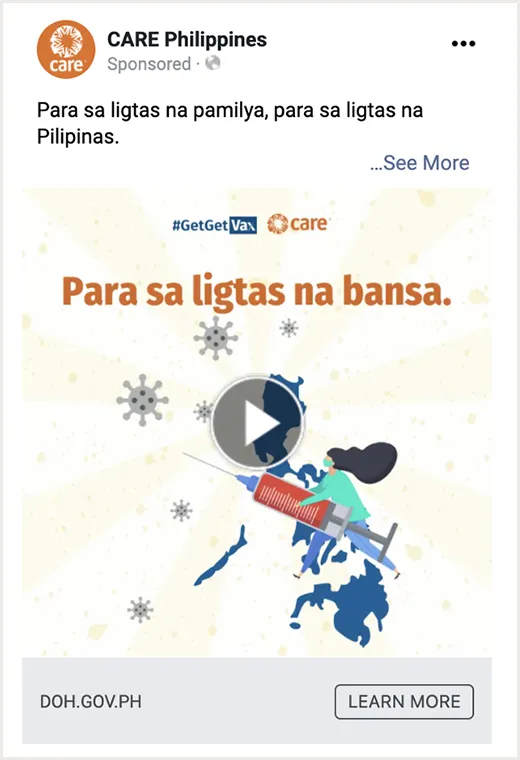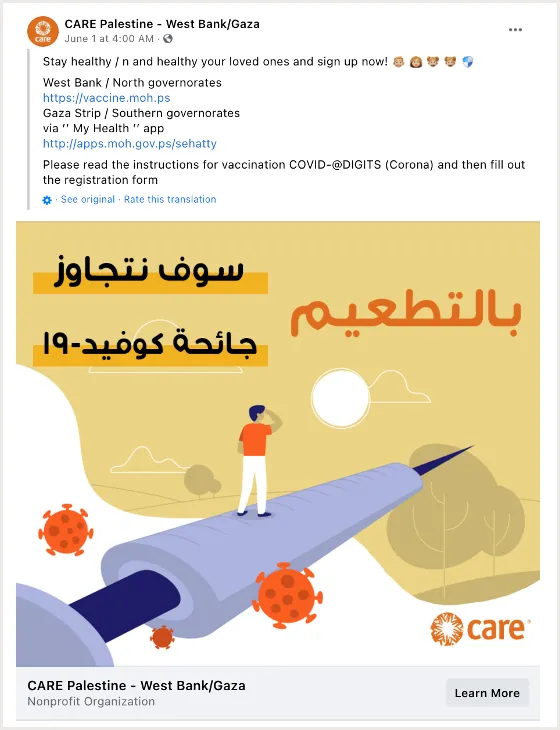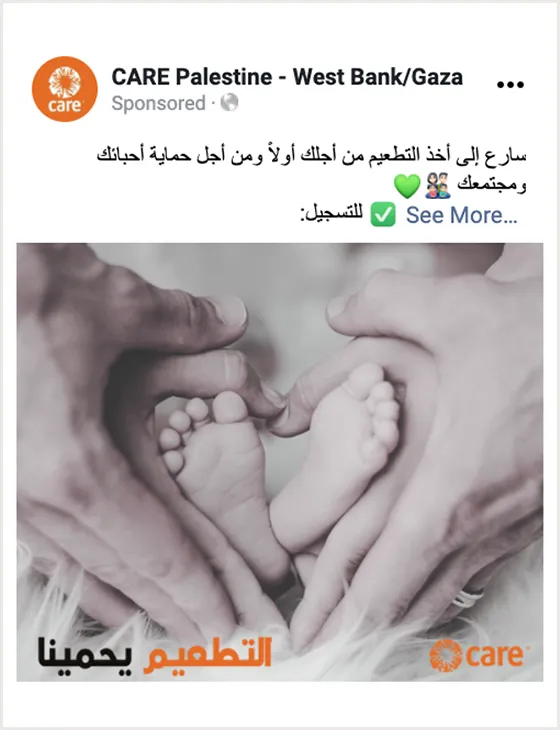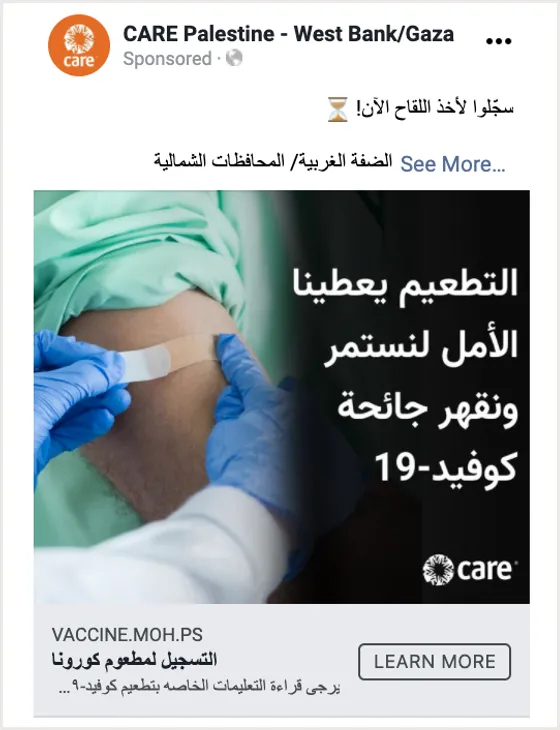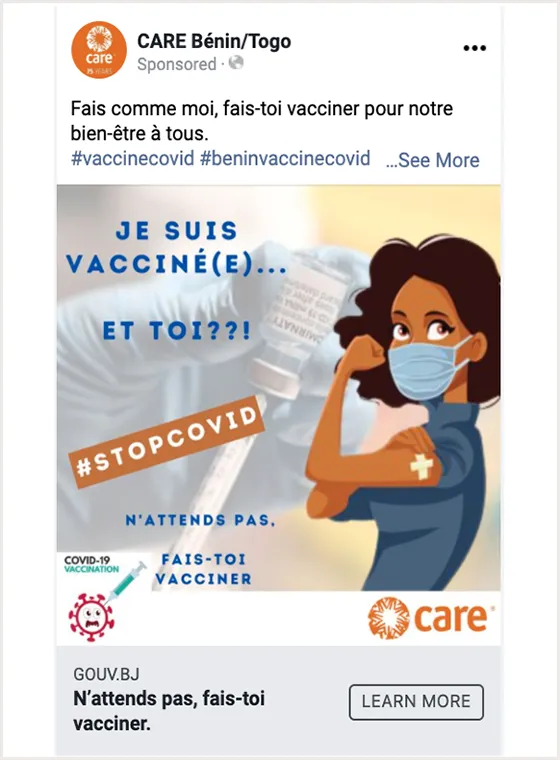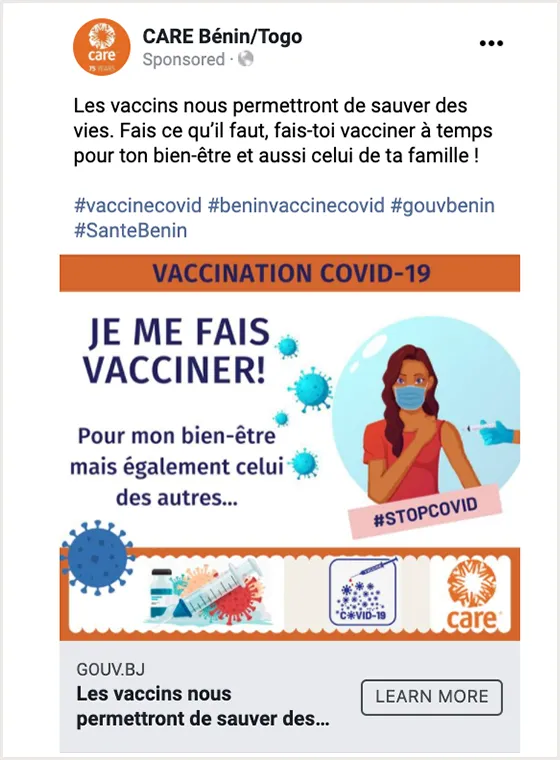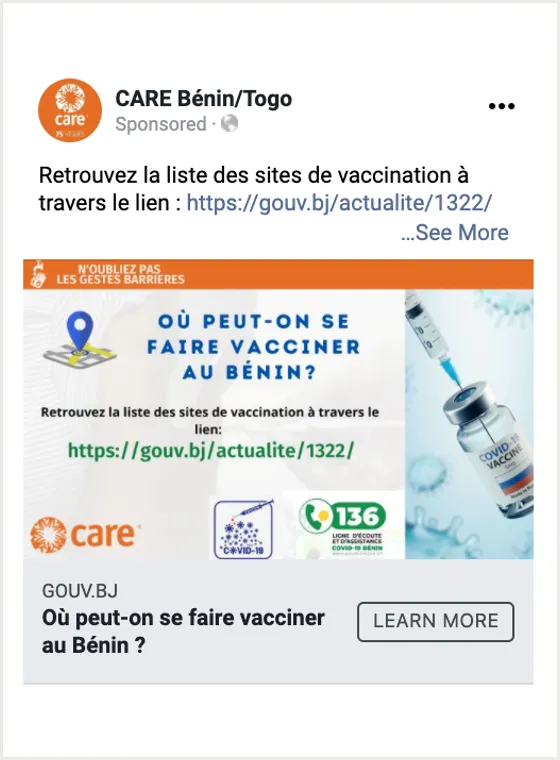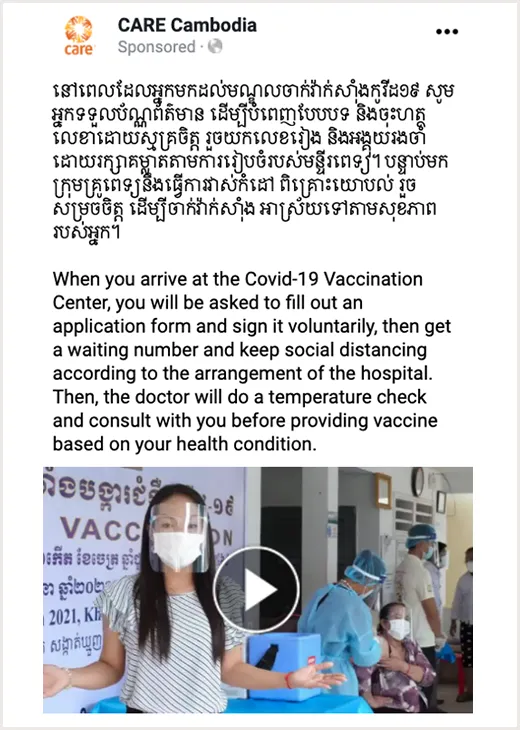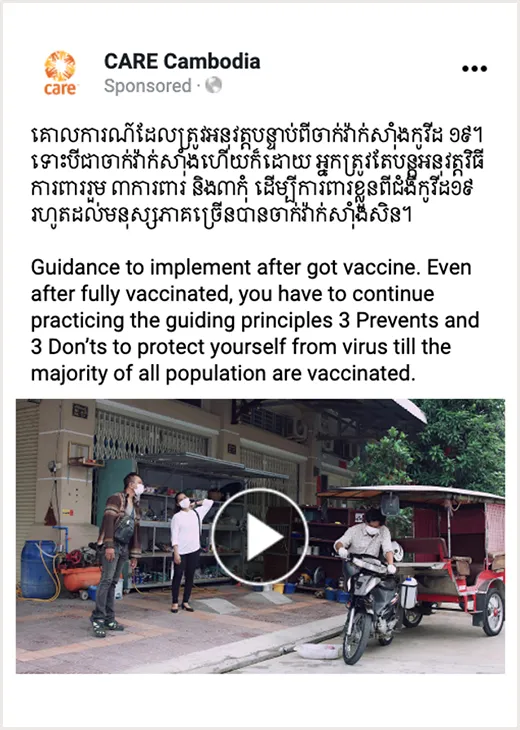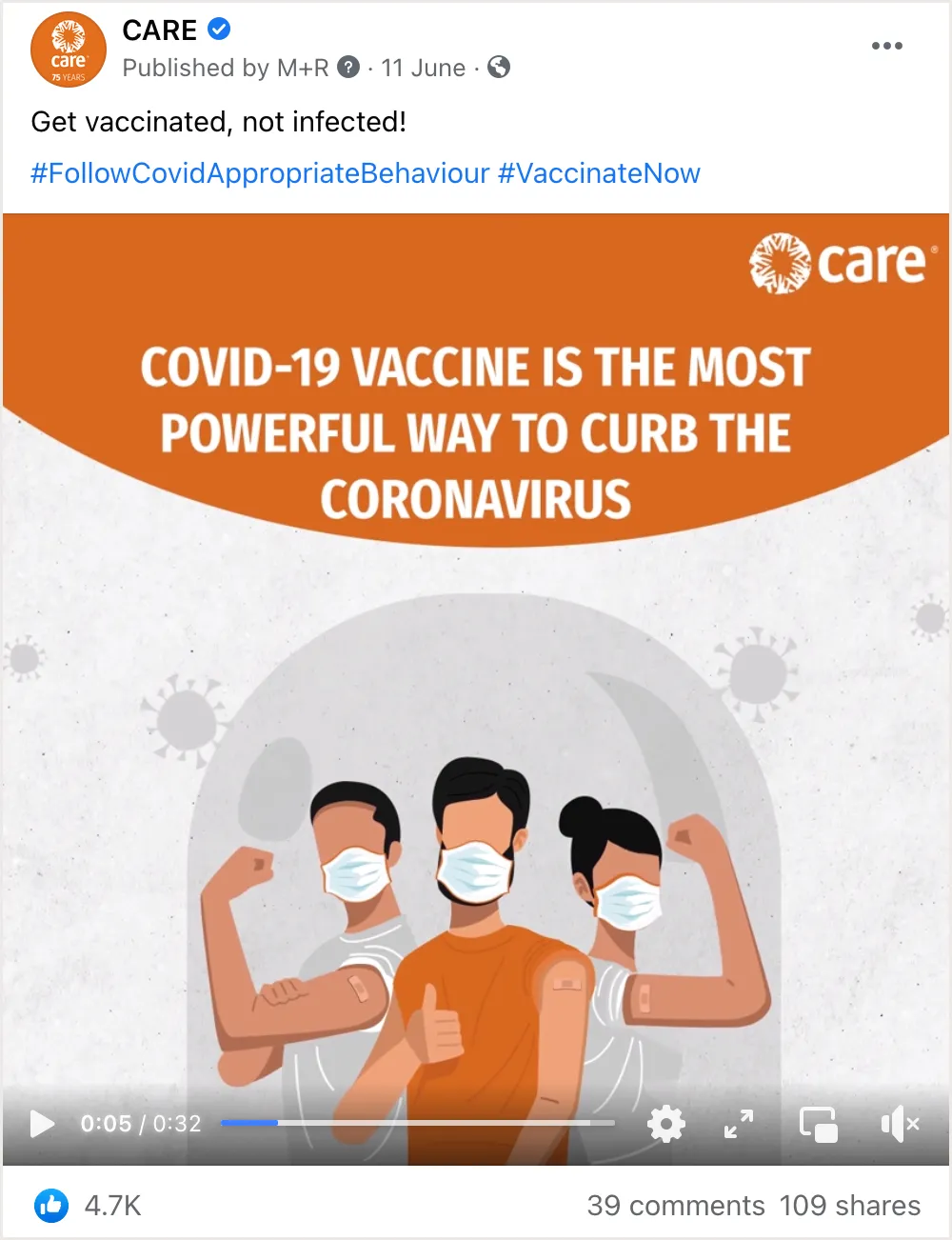Even before COVID-19 began its relentless spread around the world, CARE was providing comprehensive guidance and WHO guidelines to its staff and global offices. Since those early days, CARE has been distributing public health messages, hygiene kits, and clean water to help communities protect themselves from infection. Today, CARE is working to ensure fast and fair vaccine distribution to everyone, everywhere. As we continue to encounter millions around the world who are either vaccine resistant or in places where vaccines are not yet available, we have worked to improve knowledge and understanding of the ways social media can apply social and behavior change communication strategies to improve public health. Through a groundbreaking partnership with Facebook, we have begun to understand what kinds of messaging works best to increase COVID prevention behaviors and vaccine acceptance.
In the spring of 2021, CARE staff from 19 CARE Country Offices participated in an 8-week workshop to learn how to run social and behavioral change communications (SBCC) campaigns on the Facebook platform. Participants explored strategies to create culturally appropriate messaging to encourage the adoption of preventative behaviors and / or to build trust in the vaccine, even if it wasn’t yet available.
Staff from CARE Country Offices developed locally led campaigns using lessons learned during the eight-week series that responded to specific needs in each country’s context.
CARE Country Office staff prepared thoughtful campaigns by first researching hesitant populations, working to understand the source of that vaccine hesitancy and what arguments motivate changes in attitudes, knowledge and / or behavior. Then, each team created ads with messages designed to motivate the hesitant audience. Campaigns were then uploaded to the Facebook platform and results were monitored weekly.
Varied Approaches:
In some countries, the COVID vaccine was not yet available when the campaigns launched. These countries focused on COVID prevention as the virus spiked around the world.

